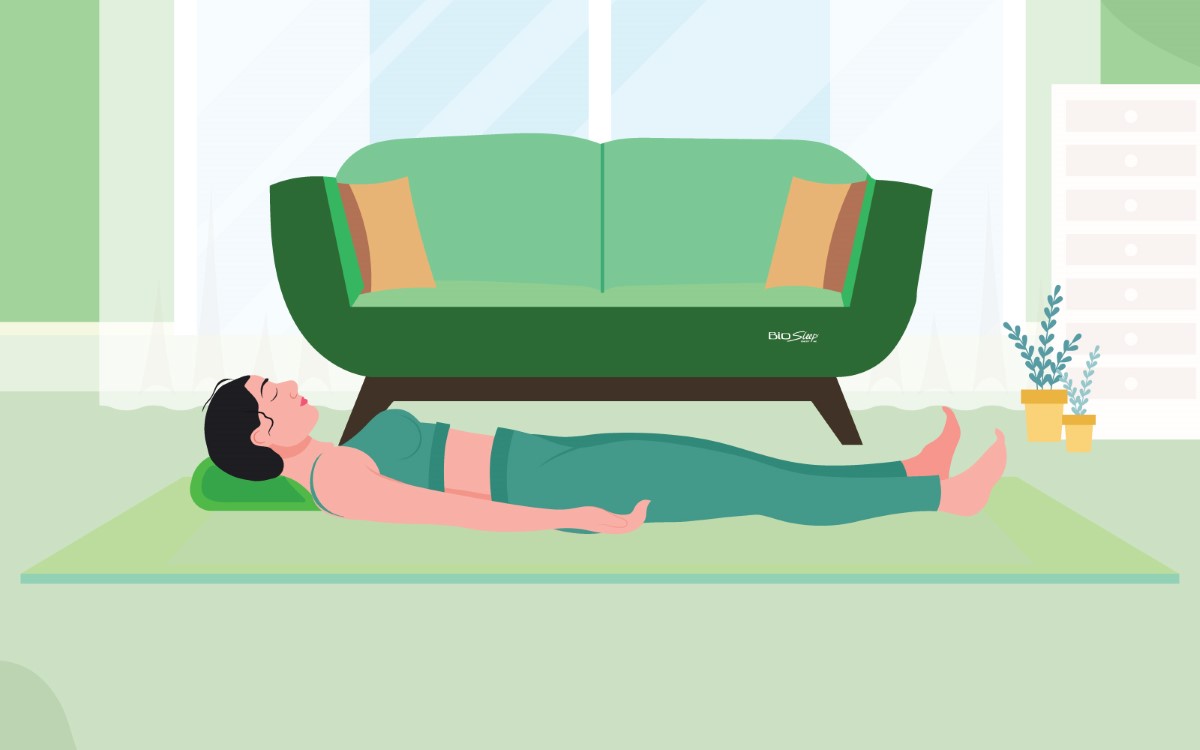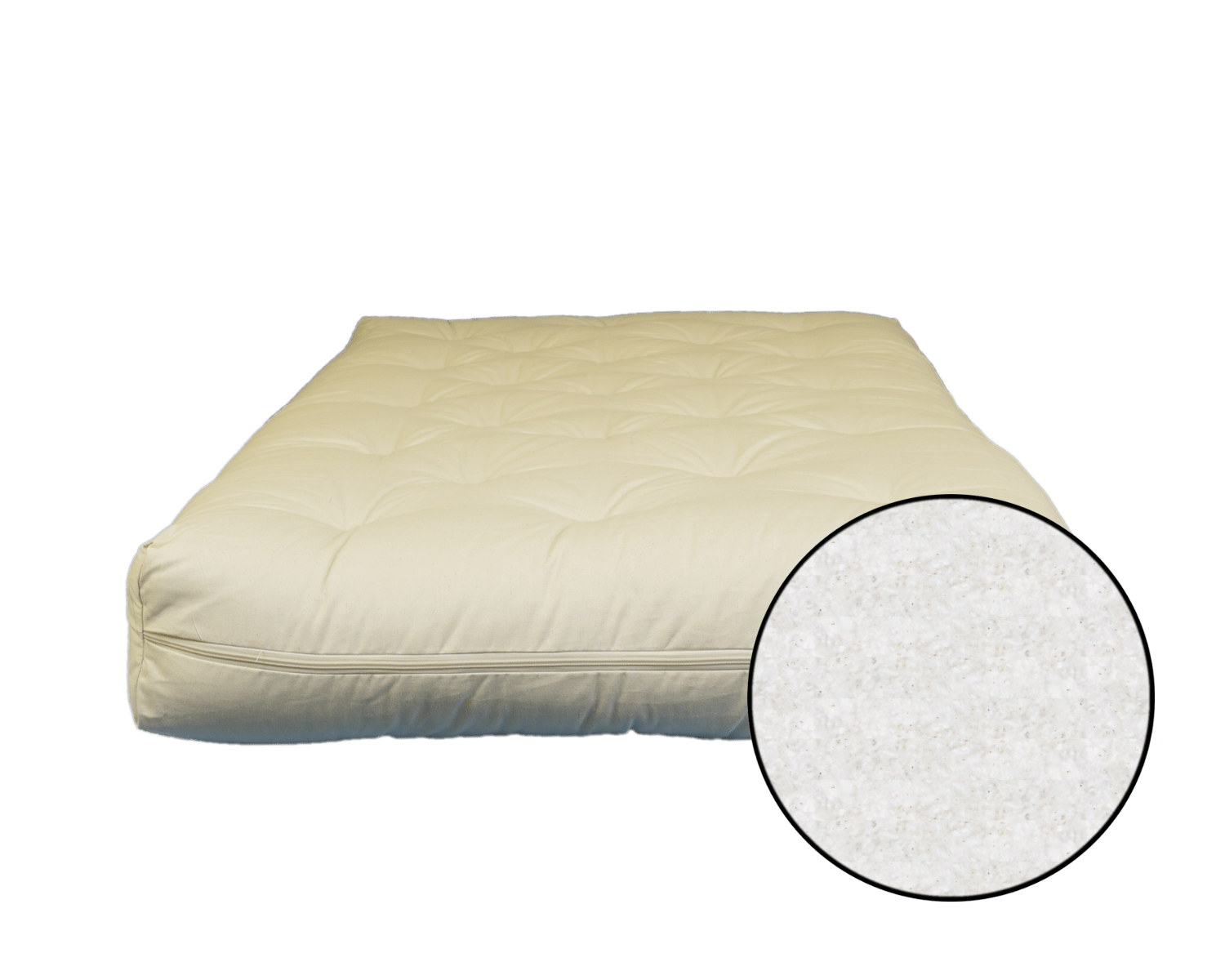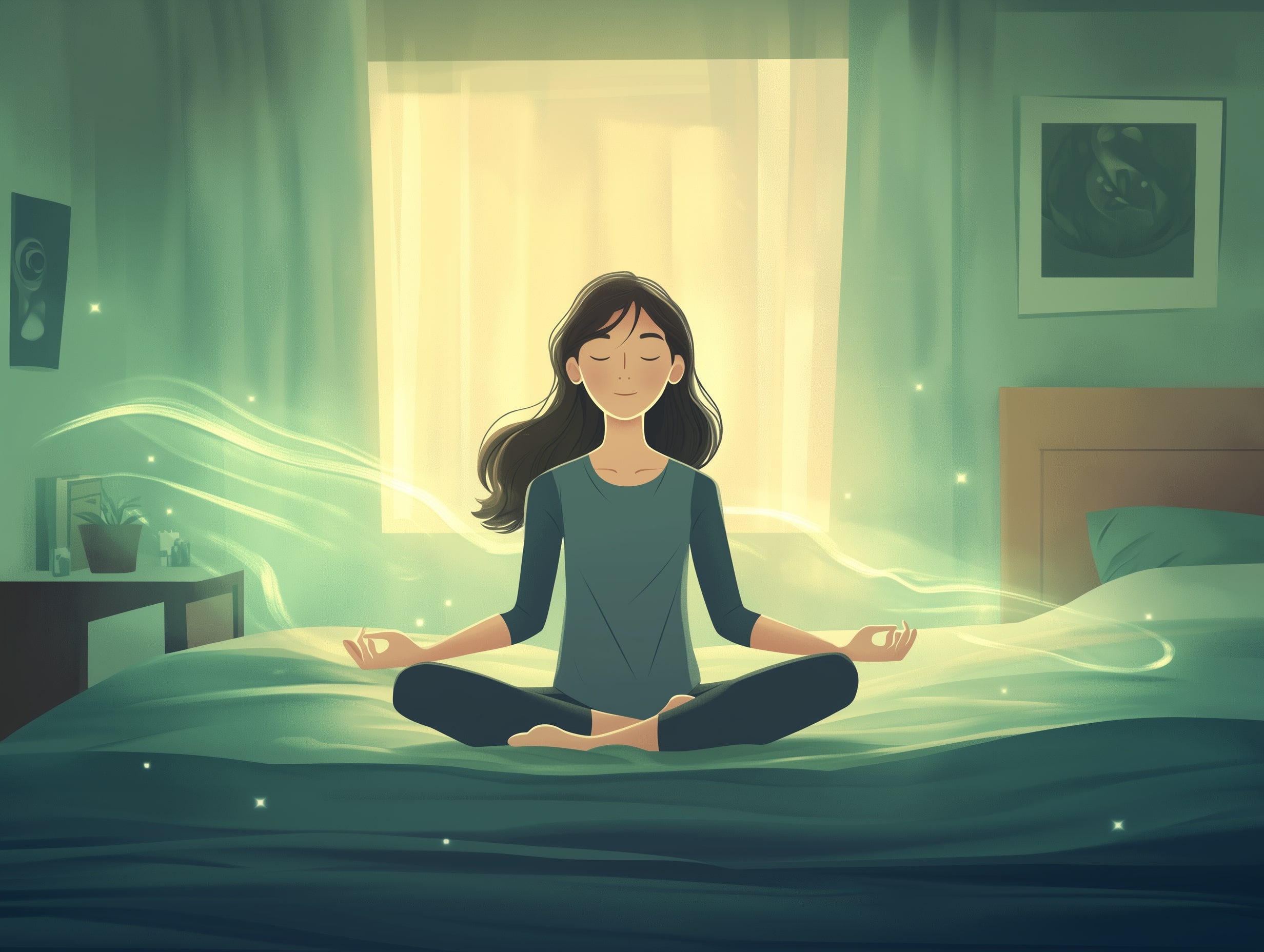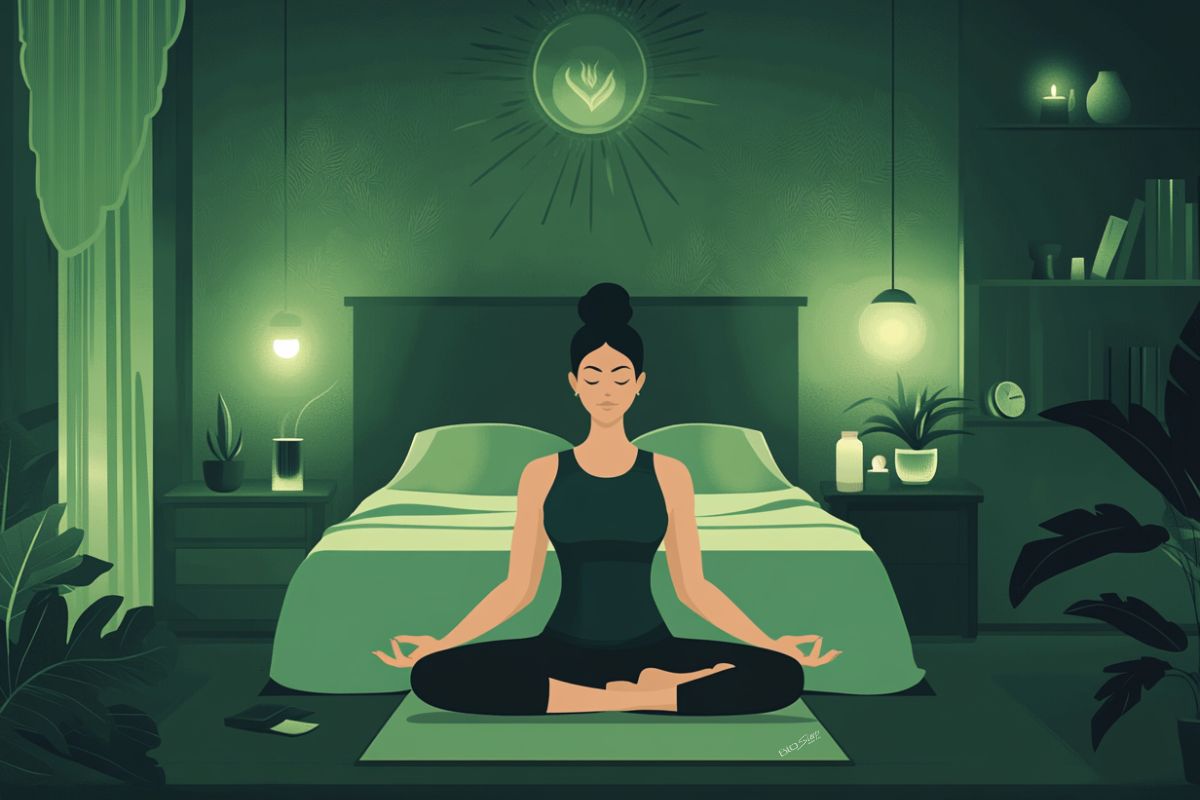In the modern fast-paced world, stress and anxiety are predominant, leaving people restlessly sleep-deprived. The quest for a restful night’s sleep, therefore, has become a challenge for many people, making them turn to various methods and relaxation techniques to induce a deep slumber.
One such method or practice is the yoga nidra. Originating in ancient India, yoga nidra is a highly effective relaxation technique that can level up your sleep quality.
Here, we will discuss yoga nidra in detail and how it can elevate your sleep quality.
What is Yoga Nidra?
Yoga Nidra, often referred to as “yogic sleep,” is an ancient relaxation technique that often gives a powerful and transformative experience.
The words“yoga” and “nidra” have their roots in the Sanskrit language, where yoga means union with the self and nidra translates to sleep. Hence, yoga nidra translates to “union with sleep.”
This deep relaxation technique has been prevalent since ancient times and was practiced extensively in the medieval era. However, the first known modern usage of yoga nidra began from 1973 onwards, when Dennis Boyce’s book, The Yoga of Waking Sleep, was published in Paris. In 1976, Swami Satyananda first demonstrated a systematic practice of yoga nidra, which is generally followed by the masses.
Despite being a relaxation technique, yoga nidra doesn’t cause the body to enter unconscious sleep. Rather, the practice of yoga nidra results in a dynamic sleep, where the practitioner is fully aware and alert, yet the body of the practitioner feels very light, energized, and relaxed.
How Does Yoga Nidra Improve Sleep?
Sleep scientists and health experts are investigating to understand yoga nidra’s effects on sleep quality.
Experts suggest that yoga nidra activates the parasympathetic nervous system in the body, thereby, suppressing the sympathetic nervous system which is responsible for the body’s stress response.
The unconscious and autonomic activities of the body such as breathing, heartbeat, blood flow, and digestion are governed by the parasympathetic nervous system. Sleep is said to be one of those autonomic activities.
Yoga Nidra helps activate autonomic activities naturally thereby putting the body at ease, which makes one fall asleep faster and also stay longer in deep sleep.
Benefits of Yoga Nidra
Yogic sleep offers innumerable benefits for the mind, body, and emotions.
- One of the primary benefits is that yoga nidra can enhance deep relaxation, promote calmness, and reduce stress levels.
- It helps alleviate insomnia by improving sleep quality by inducing the hypnagogic state of the mind that slows down the brain waves.
- It often results in enhanced cognitive function in the brain too, thus improving focus, concentration, and self-awareness.
- It also improves mood, overall well-being, self-confidence, and self-esteem.
- Yoga Nidra is also found to be beneficial in improving menstrual cycles and treating unwanted menstrual symptoms like experiencing fewer cramps, less menstrual pain, etc., in women.
Practicing Yoga Nidra
Practicing yoga nidra requires one to lie down in savasana (corpse pose), leaving both hands aside, letting them loose, and relaxing, just like a corpse. Then, the practitioner follows a set of instructions, whether recorded or live. It involves the following:
- Mentally or verbally affirming a positive statement or intention, known as Sankalpa, thus, beginning the session.
- Mentally visualizing different parts of the body and placing attention on that part while mentally becoming fully aware of the body part.
- Paying attention to the breath, feeling the air flowing in and out of the body.
- This often energizes the various body parts, making them feel relaxed as you move on to the next body part.
- Witnessing any emotions, pains, or thoughts arising from the body or the mind.
- Returning to your awareness of the body slowly and gradually to complete the session.
The practice of yoga nidra helps in deep relaxation, reducing stress and anxiety, promoting mental and emotional balance, and enhancing awareness of the self.
While the practitioner may begin to experience the benefits of yogic sleep from the first session itself, regular practice can elevate the quality of sleep and enhance mindfulness. An adept practitioner will also experience improved concentration and a profound sense of blissful joy.
Understanding the Difference between Yoga Nidra and Meditation
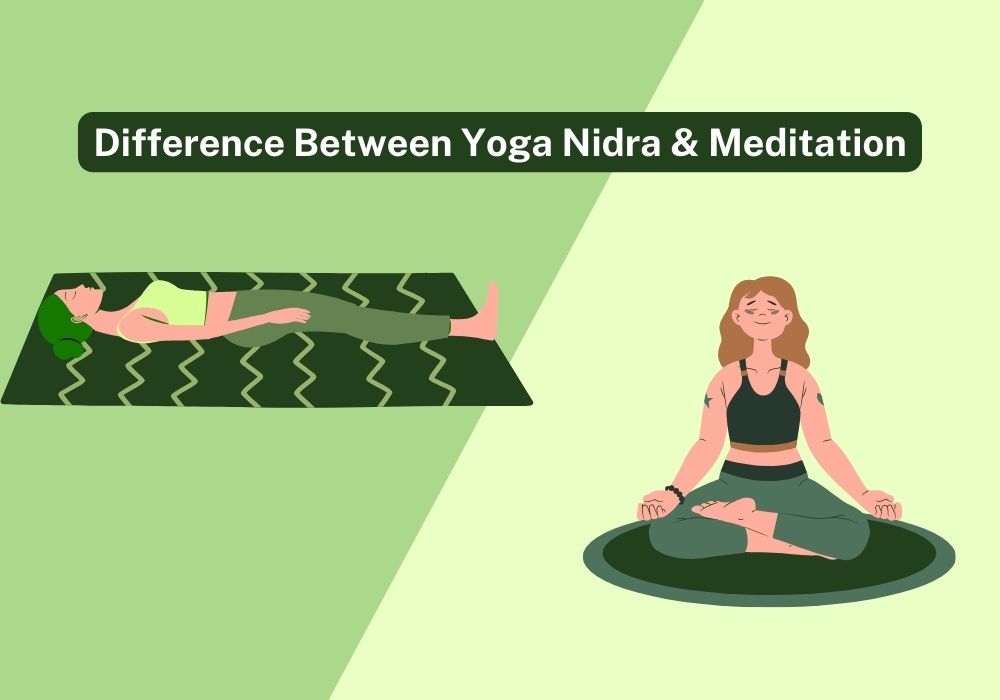
Though both yoga nidra and meditation offer similar benefits like arousing focused and intense inner awareness and promoting healthful relaxation, they differ from each other in their purpose and methods.
Meditation, in itself, is a vast concept. It aims to calm the mind through mindfulness practices, resulting in a state of inner stillness, clarity, and self-awareness. It involves many different methods and techniques, including watching the breath, focusing on a particular sound, mantra, or picture, or simply observing the thoughts arising in the mind as a neutral witness.
On the other hand, the purpose of yoga nidra is to relax the body and mind. It involves following a guided set of instructions and channeling awareness through various parts of the body. This relaxes the body parts and helps in inducing deep sleep at night.
Another major difference between the two is that yoga nidra is specifically practiced while lying down. Whereas, in meditation one needs to sit upright with the spine straight.
While both meditation and yoga nidra offer great mental and physical well-being, it is for the practitioner to decide their individual preferences.
Experience Enhancing Blissful Sleep
If you want to experience deep relaxation that will help your body and mind to experience deep restorative sleep, you must try Yoga Nidra. Regularly practicing yoga nidra has immense other benefits, letting you experience a blissful state of self-awareness that resonates with your being.

